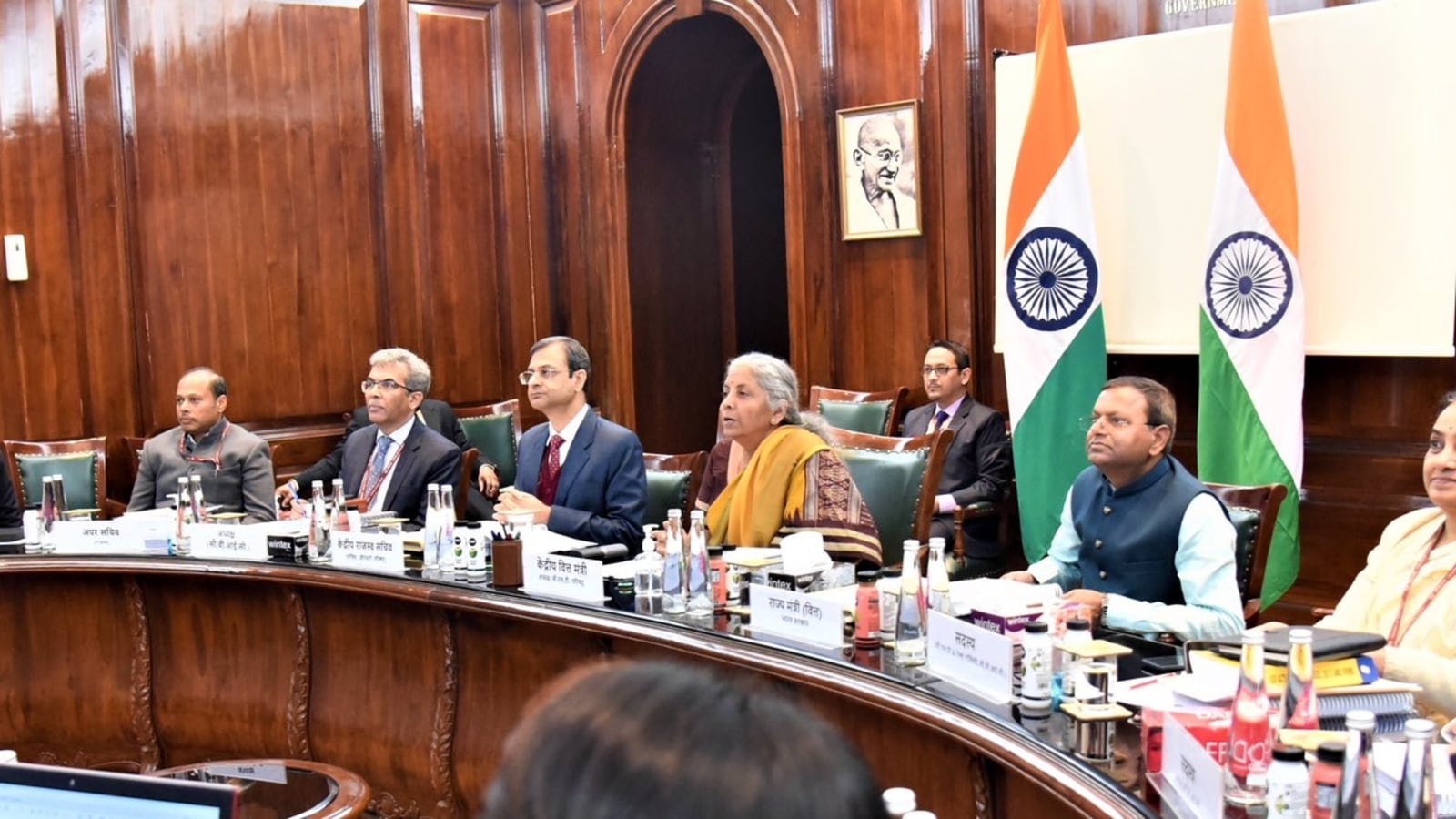Ahead of GST meet, rift wide open on e-gaming tax rate

Ahead of GST meet, rift wide open on e-gaming tax rate
The Goods and Services Tax (GST) Council faces a significant challenge in reaching a consensus on a revised tax structure for the online gaming sector. A deep divide among the states is making it harder for the council to make decisions regarding this matter as they convene for a meeting on July 11.
Sources indicate that out of the eight Group of Ministers (GoM) members, only the finance ministers of Uttar Pradesh and West Bengal fully support the panel’s initial report. This report recommended a 28% GST on online gaming, applying to the full value of consideration without distinguishing between games of skill and games of chance.
The lack of consensus among the states reflects differing opinions on how online gaming should be taxed. Some states may advocate for a higher GST rate or a uniform tax structure across different forms of gaming, while others may argue for a differentiated tax structure based on the classification of games as either skill-based or chance-based.

This divide within the GST Council poses challenges in reaching a consensus and finding a balanced approach to taxation in the online gaming sector. The decision on the tax structure will have implications for the online gaming industry, its players, and the overall tax revenue generated from this sector.
As the GST Council deliberates on this matter, it will require extensive discussions, negotiations, and possibly further analysis to address the concerns and find common ground among the states. The outcome of the meeting on July 11 and subsequent discussions will clarify the direction the council takes in determining the revised tax structure for the online gaming sector in India.
In the discussions regarding the revised tax structure for the online gaming sector in India, certain states have put forward their preferences regarding the Goods and Services Tax (GST) levy.
Goa and Gujarat are reported to have advocated for the GST levy to be imposed solely on the platform fees charged by online gaming firms. Goa has suggested an 18% tax rate, while Gujarat has proposed a rate of 28%.
Meanwhile, Maharashtra has voiced the opinion that there should be no differentiation based on whether a game is considered skill-based or chance-based. The state has suggested that the tax rate should be the same for actionable claims in horse racing, casinos, and online gaming. However, it also proposed the inclusion of suitable reduction to determine the taxable value of the supply of actionable claims.

These differing opinions from various states reflect the complex nature of taxation in the online gaming sector and the challenges in reaching a consensus. States have put forward their own perspectives, advocating for different tax rates and considerations in determining the taxable value.
The discussions within the GST Council must address these varying viewpoints and find common ground to ensure a fair and consistent tax structure for the online gaming sector. The final decision will likely involve careful consideration of the economic and legal aspects of online gaming and its implications for tax revenue and industry growth.
It remains to be seen how the GST Council will reconcile these divergent views and arrive at a consensus during their meeting on July 11. The outcome of these discussions will shape the future tax framework for the online gaming sector in India.
The Group of Ministers (GoM), in its initial report in June of the previous year, had recommended a tax rate of 28% on the total value of consideration for online gaming activities. This would include the contest entry fees players pay to participate in such games. Currently, the Goods and Services Tax (GST) on online skill-based gaming is levied at 18% of the platform fee.

If the GoM’s proposal is implemented, the tax incidence on the gaming industry will significantly increase. The difference between the current tax rate of 18% and the proposed rate of 28% would lead to a considerable rise in tax liability for online gaming operators.
The potential implementation of the GoM’s recommendation would impact the online gaming sector’s profitability and overall tax burden. The industry may face challenges in adjusting to the higher tax rate, potentially affecting the cost structure and pricing for players and operators alike.
It’s important to note that the final decision regarding the tax structure for online gaming will depend on discussions and consensus among the GST Council members. The views and proposals put forward by different states will be taken into account in determining the revised tax structure.
The GST Council will need to carefully assess the economic impact, revenue considerations, and the competitive landscape of the gaming industry while making decisions on the tax structure. Finding a balance that supports industry growth while ensuring a fair and consistent tax framework will be crucial.
The outcome of the GST Council’s meeting on July 11 and subsequent discussions will shed more light on the direction and implications of the revised tax structure for the online gaming sector in India.
Gaming companies in India typically charge a platform fee, which can range up to 20% of the contest entry amount. Suppose the tax rate is increased to 28% and applied to the entire consideration. In that case, gaming executives argue that their companies may be compelled to pass on the additional tax burden to the gamers. This could potentially have negative consequences for the fast-growing gaming sector in India. An increase in the tax burden would result in higher platform fees and reduced winning amounts for gamers.
It’s important to note the distinction between games of chance and games of skill. Games of chance are those that rely solely on luck and chance, such as betting and gambling. On the other hand, games of skill are primarily based on the skills and abilities of the players.
The taxation of online gaming is a complex issue, particularly when it comes to differentiating between skill-based and chance-based games. Determining the appropriate tax rates and structures for the gaming industry involves considerations of fairness, revenue generation, and the promotion of a healthy gaming ecosystem.
As discussions within the GST Council continue, finding a balance between tax revenues and the growth of the gaming sector will be a key challenge. The final decision on the tax structure will require a thorough assessment of the economic impact and stakeholder feedback.
The outcome of the GST Council’s meeting on July 11 will provide more insights into how the tax structure for the online gaming sector in India will be revised and how the concerns of gaming companies and players will be addressed.
In the initial report by the Group of Ministers (GoM), it was recommended that in the case of racecourses, the Goods and Services Tax (GST) should continue to be levied at a rate of 28% on the full value of bets pooled in the totalisator and placed with bookmakers. For casinos, the GoM proposed a GST rate of 28% to be applied on the full face value of the chips/coins purchased by players from the casino.
It was also suggested that once GST is levied on the purchase of chips/coins, no further GST should be applied to the value of bets placed in each round of betting, even if played with winnings from previous rounds.
However, in a GST Council meeting on June 29 of the previous year, Finance Minister Nirmala Sitharaman, who chairs the council, asked the GoM to revisit the taxation issues raised, including concerns flagged by the Goa government regarding casinos. Despite discussions and deliberations, a consensus on the tax structure for the gaming sector is yet to be reached.
Given the nature and sensitivity of the matter, officials believe that a political decision may be required to determine the tax rate and the applicable base for taxation. Goa has suggested that casinos could be taxed at 28% on the gross gaming revenue (margin), while online gaming could be taxed at 18% or at a rate to be decided by the GST Council specifically on platform fees.
The differing opinions and discussions within the GST Council reflect the complexities involved in determining an appropriate tax structure for the gaming sector. Finding a balance between revenue generation, industry growth, and fair taxation is crucial. The final decision on the tax rate and base for taxation will require further deliberations and potentially a political call to address the concerns and reach a consensus among the participating states.
As the discussions progress, the outcomes of the GST Council meetings will provide more clarity on the tax structure for racecourses, casinos, and online gaming in India. In the context of the taxation of betting, gambling, and online gaming, Telangana and Tamil Nadu have expressed the view that if an activity falls under the category of betting and gambling, it should be taxed at a rate of 28% on the full-face value. For activities that do not fall under the scope of betting and gambling, the existing provisions may apply, which currently levy a tax rate of 18%.
On the other hand, Meghalaya has taken a different stance. It has suggested that in online gaming and horse racing, the sum of money retained by the online gaming operator or the racing club should not be considered as part of the actionable claim. Therefore, it can be taxed as per the rate recommended by the GST Council for the supply of services.
These differing views among states highlight the complexity of defining the tax structure for activities related to betting, gambling, and online gaming. The categorization and taxation of such activities involve considerations of legal definitions, economic impact, and revenue generation.
To reach a consensus, the GST Council will need to carefully analyze the viewpoints and arguments put forward by the participating states. Finding a balanced approach that ensures fairness, promotes industry growth, and generates revenue will be crucial.
The final decision on the tax structure for these activities will require deliberations and discussions among the GST Council members. It remains to be seen how the council addresses the concerns and reaches an agreement on the taxation of betting, gambling, and online gaming in India.




